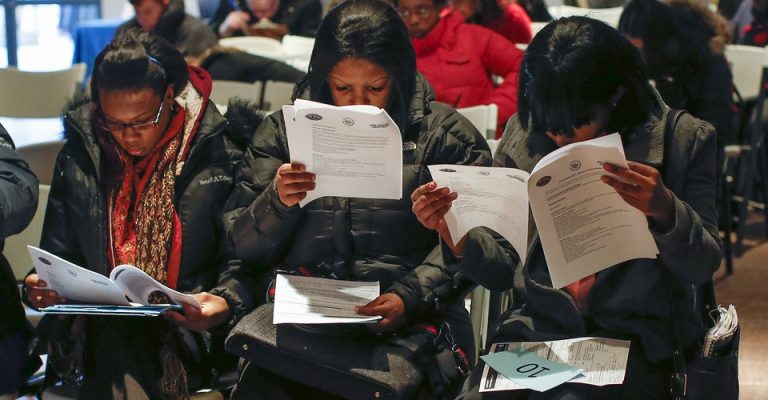Once fired, black workers return to the pool of unemployed—where they will once again have a difficult time finding work, prompting their next employer to be wary as well. In the meantime, white workers are less scrutinized, and as a result, they enjoy a longer tenure on the job, which leads to a stronger work history, more skills, and higher wages.
In order to keep a job, black workers also must meet a higher bar. Only in instances where black workers are monitored and displayed a significantly higher skill level than their white counterparts would they stand a significant chance of keeping their jobs for a while, the researchers found. But even in instances where the productivity of black workers far exceeded their white counterparts, there was still evidence that discrimination persisted, which could lead to lower wages or slower promotions.
This all may help explain the continuing gaps in labor market outcomes between black and white Americans. Historically, the unemployment rate of black Americans hovers about 2 percentage points higher than their white counterparts. Right now, the gap is much wider. At the close of the third quarter the unemployment rate for white Americans was 4.5 percent, below the national average of just over 5 percent. For blacks, however, unemployment was 9.4 percent. And that’s an improvement. Unemployment among black Americans only dipped below 10 percent at the start of 2015—more than five years into the economic recovery. The unemployment rate for whites never even topped 10 percent.
Unsurprisingly, all of these job switches mean that black workers can expect to make less over a lifetime than their white counterparts, which can exacerbate the income and wealth gaps between the races. “With a monitoring regime to look forward to at any future job, a black worker revealed to be in a good match could receive less than an unrevealed white worker,” the economists write.
The current system, in which black workers are disproportionately monitored and let go, while white workers are allowed longer stints, isn’t just bad for black people—it’s bad for the labor market overall. Such an arrangement is inefficient since a large pool of the unemployed drags on overall productivity and labor health, and since such bias doesn’t guarantee that the most productive person gets, and keeps, a job.
We want to hear what you think about this article. Submit a letter to the editor or write to letters@theatlantic.com.





